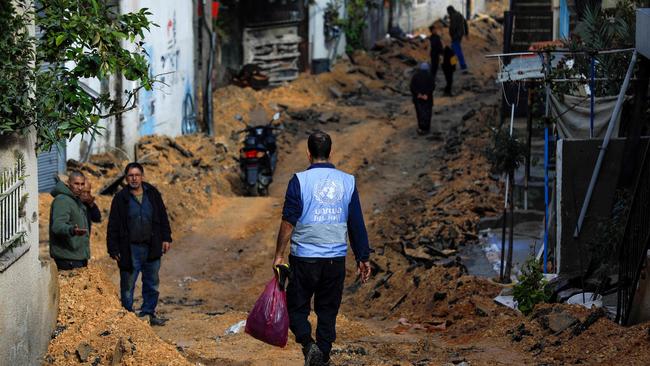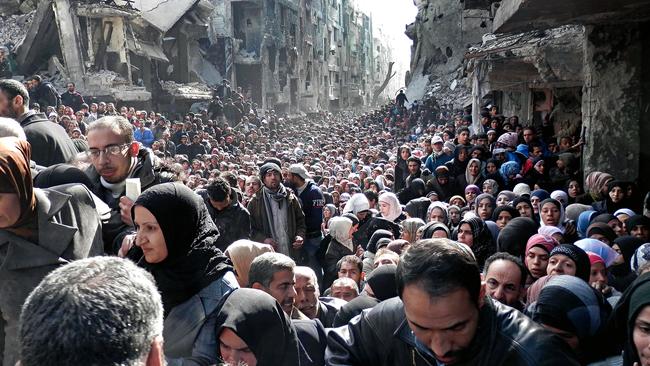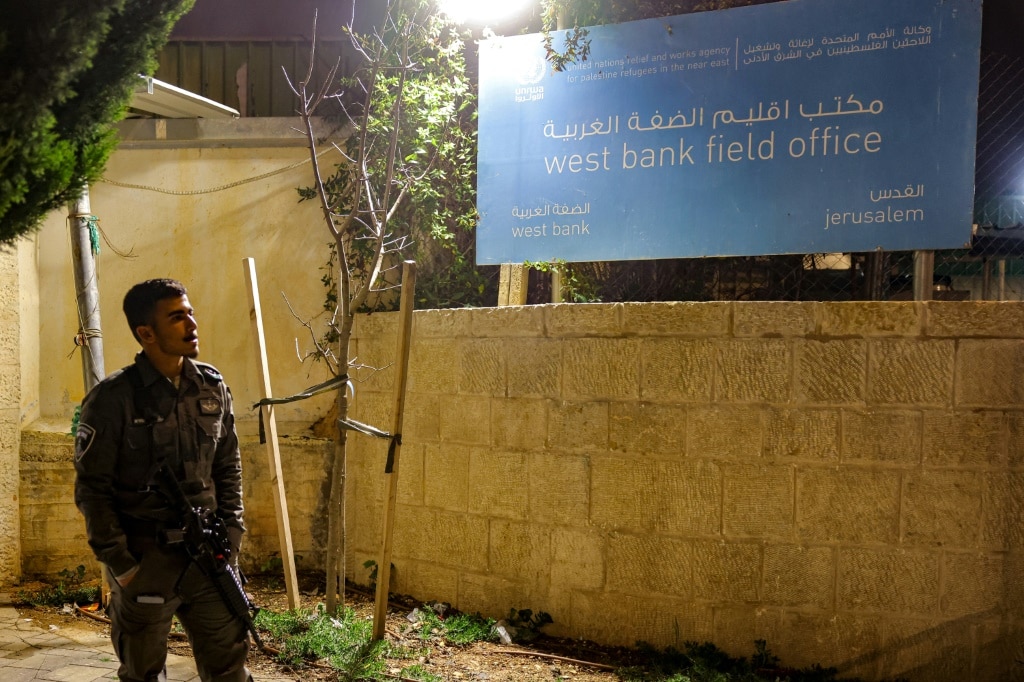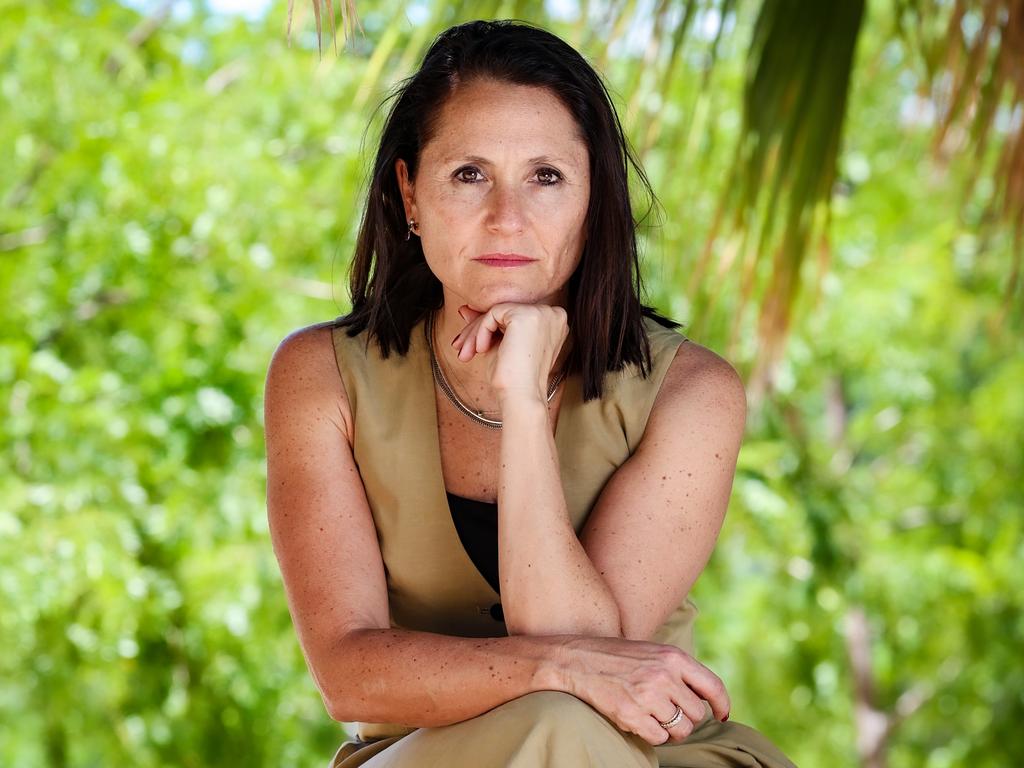
That would be a pity because UNRWA’s history highlights devastating flaws that have aggravated the conflict in the Middle East and made it especially intractable.
When UNRWA was established, some 50 million people were in the throes of displacement worldwide. Faced with that humanitarian disaster, the international reaction was extraordinarily uneven.
The traumas experienced by the 15 million refugees who, following partition in 1947, fled to and from India and Pakistan elicited only a paltry response from the UN. Paltry too was the assistance provided to the 10 million displaced persons in war-ravaged Europe, with scarcely anything being done for the 12 million ethnic Germans forcibly expelled from Czechoslovakia, Hungary and Poland.
And when 800,000 Jews were expelled or fled from the Arab lands in which they had lived for centuries, the aid Israel received was not even derisory.
But pressure from the Arab states, and the belief that a generous program would facilitate a speedy peace process, spurred the creation in 1948 of UN Relief for Palestine Refugees, which became UNRWA two years later.
Reflecting that belief, UNRWA was meant to be strictly temporary, with the UN’s intention being to “arrange for the transfer of relief administration to (host country) governments no later than 1 July 1952”.
Additionally, based on the findings of the 1949 UN Economic Survey Mission to the Middle East, which had recommended (in line with what was occurring for the other displaced populations) that the primary emphasis be on settling the 700,000 Palestinian refugees in their place of refuge, the agency’s major task was to promote the Palestinians’ integration into the Arab host countries.
But UNRWA’s attempts to fulfil that mandate soon came unstuck. The whole idea of an agency solely serving Palestinians militated against the goal: it entrenched their separateness from, not integration with, their fellow Arabs.
To make things worse, the host countries, with the partial exception of Jordan, rejected resettlement outright, claiming the refugees’ complete repatriation was the only solution. As Benny Morris, a historian harshly critical of Israel, put it, the Arab governments “regarded repatriation as the solution that could undermine the Jewish state, to whose existence they objected”.
UNRWA’s resettlement programs were vehemently rejected by the refugees too. Having been assured by the Arab leadership that “all you have to do is eat and sleep: the Arab armies will get your country back for you”, the 1950 Congress of Palestinian Refugees dismissed resettlement as “a project prepared by the Imperialists”.
With that claim echoing across the refugee camps, UNRWA director John Blandford noted in 1951 that its work had been hit by “strikes against making any improvements in the camps in case this might mean permanent resettlement; and (by a) widespread refusal to work on agency road-building and afforestation schemes”.
By 1957, all serious attempts at promoting economic development had been abandoned. Instead, the agency concentrated on relief, dispensed in cash and through the provision of services.

Relief, Blandford later wrote, was “considered a right” by the Palestinians, with the Palestinian Students’ Union declaring “UNRWA’s duty (is to secure for) the oppressed Palestinians the means of tranquillity and ease”. UNRWA not only accepted that claim; vastly stretching the definition of a refugee, it made the entitlement intergenerational, indefinitely perpetuating welfare dependency.
At the same time, its emphasis shifted to education, which came to account for most of the agency’s burgeoning Palestinian workforce. But that shift proved intensely problematic.
That was not only because there were no jobs for those UNRWA was educating, who were largely excluded from working in the Arab host countries. Rather, the central problem was that the agency’s school system came under the control of the most radical elements in the refugee community, so that indoctrination in the virtues of terrorism aggravated the effects of prolonged unemployment.
As early as March 1955, the Gaza UNRWA Teachers’ Syndicate had spearheaded violent demonstrations against shifting refugees out of overcrowded camps. There and elsewhere, UNRWA’s teachers were at the heart of Palestinian militancy – and their idea of the education the schools should dispense was unambiguous. “When the Palestinian child held a pencil in his hand,” wrote former UNRWA teacher Mu’in Basisu in her memoirs, “his father felt the child would some day carry a weapon.”
UNRWA’s largely Western leadership tried to prevent its complete politicisation. But those attempts failed miserably, especially once the General Assembly’s Resolutions 3236 and 3237 in 1974 recognised the PLO and required UNRWA to “establish contacts” with the organisation.
In reality, UNRWA’s links to the PLO went far beyond mere contacts: with Yasser Arafat addressing UNRWA commissioner-general Olof Rydbeck as “dear brother”, UNRWA surreptitiously relied on the PLO to secure large “emergency” contributions from the Arab states, which, claiming the refugee problem was the West’s fault, had refused to provide UNRWA with ongoing funding.
The embrace was reciprocal. In his autobiography, Shafiq Al-Hout, one of the PLO’s most influential leaders, recalls that the PLO had always targeted UNRWA employees in its recruitment drives. Thanks to those drives’ success, the PLO (and later Hamas and Hezbollah) faced few obstacles in determining what was actually taught in classes, conducting military training in UNRWA schools and using the agency’s schools and hospitals to store weapons.
Moreover, after noting how successful the tactic was in the 1970s, the PLO increasingly relied on harbouring its fighters in UNRWA facilities, since any attack on those facilities invariably provoked international outrage.
In short, well before the current crisis, UNRWA had evolved into a collective run by its radical staff, with donor states unable to prevent, or even mitigate the effects of, its capture by the terrorists and their supporters.
The consequences were not limited to the assistance that gave the PLO, Hamas and myriad other groups. Rather, by ensuring the supply of services normally provided by governments, UNRWA allowed the Palestinian Authority on the West Bank and Hamas in Gaza to escape the responsibility, and high cost, of doing so.
That dramatically reduced those organisations’ accountability to the refugees, who unfailingly blamed UNRWA, and the West, for shortfalls in cash payments and service delivery. Every bit as importantly, it enabled Hamas to spend 75 per cent of its revenues on terrorism, without needing to tax – and hence obtain some degree of consent from – Gaza’s population.
That is what the West gets for the $1.5bn it devotes annually to UNRWA: endemically corrupt governments that beat ploughshares into swords. With UNRWA’s mandate expiring in 2026, this crisis is a chance for change. Yes, credible options have to be explored between now and then. But keeping UNRWA going cannot, and must not, be among them.








Although fifteen Western countries have suspended their funding for the United Nations Relief and Works Agency for Palestine Refugees, the risk is that the agency will, after a few cosmetic changes, survive this crisis unscathed, as it has so many in the past.